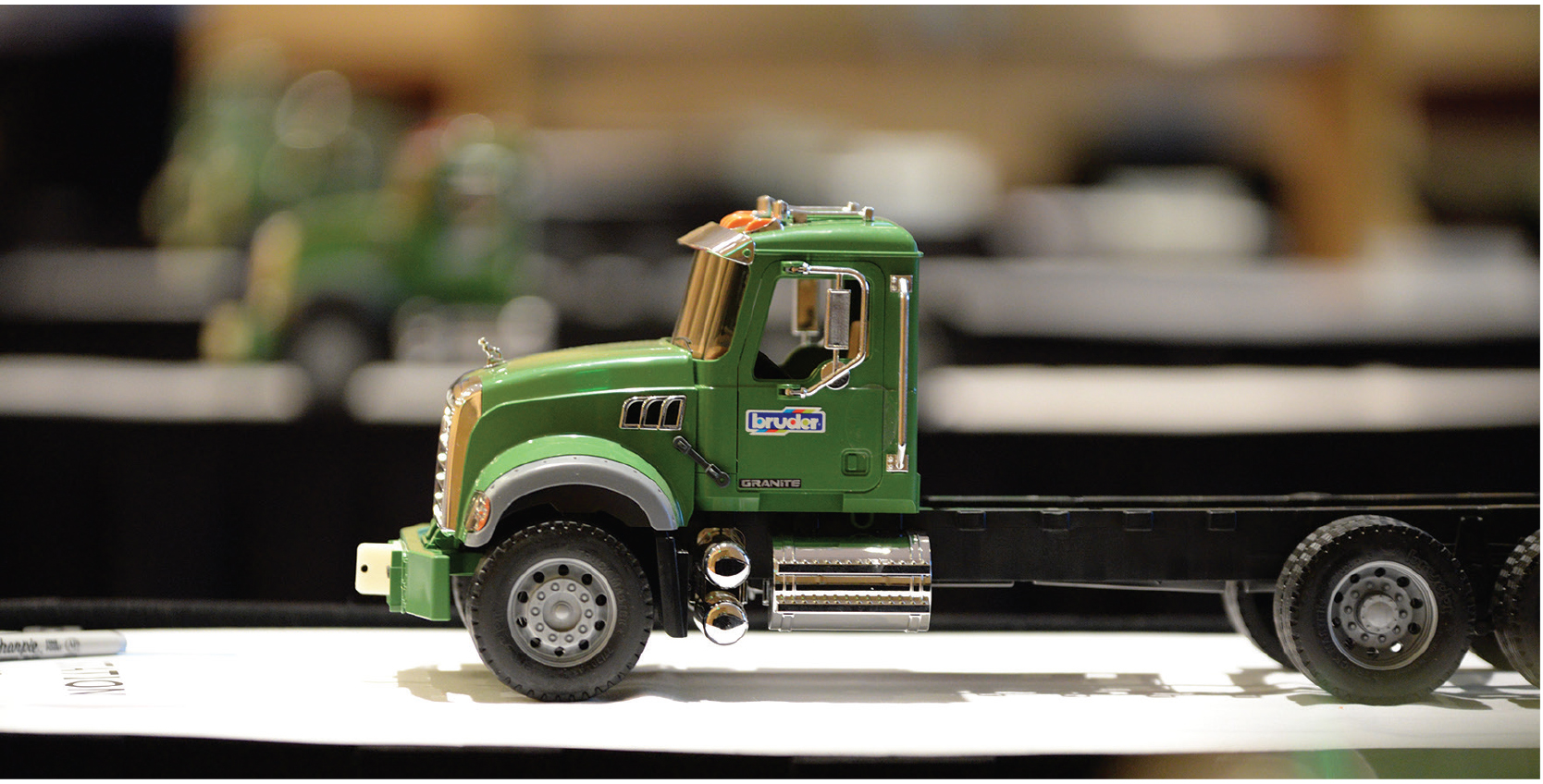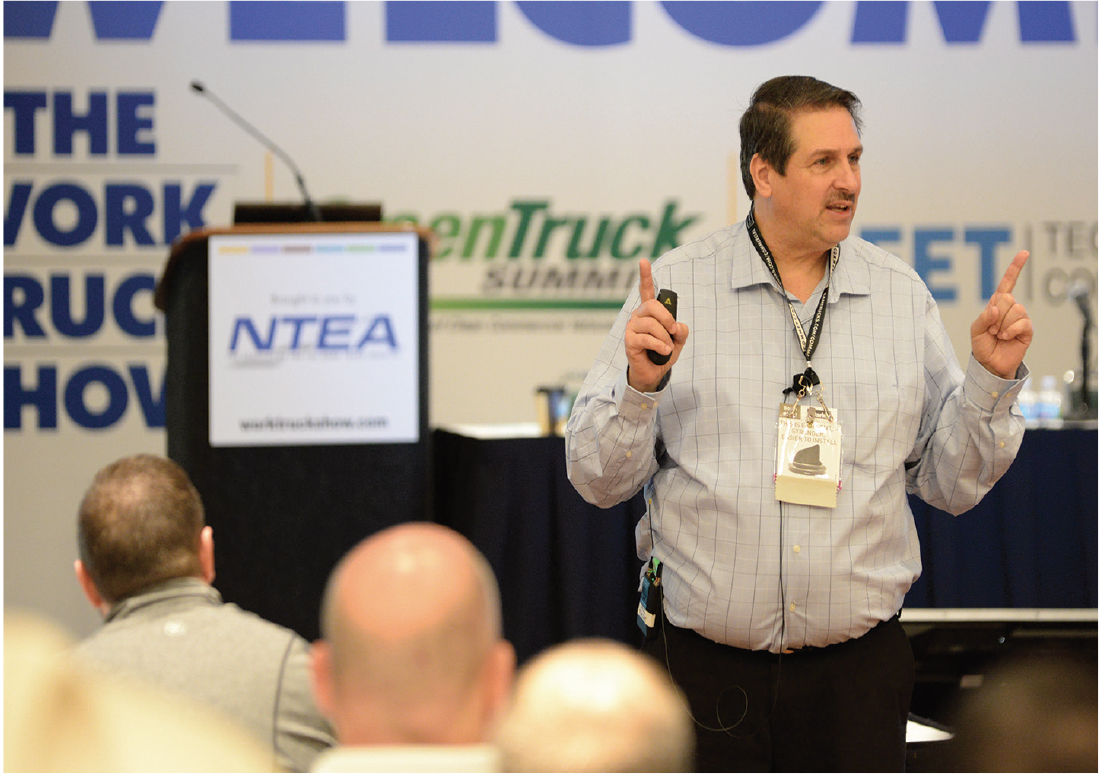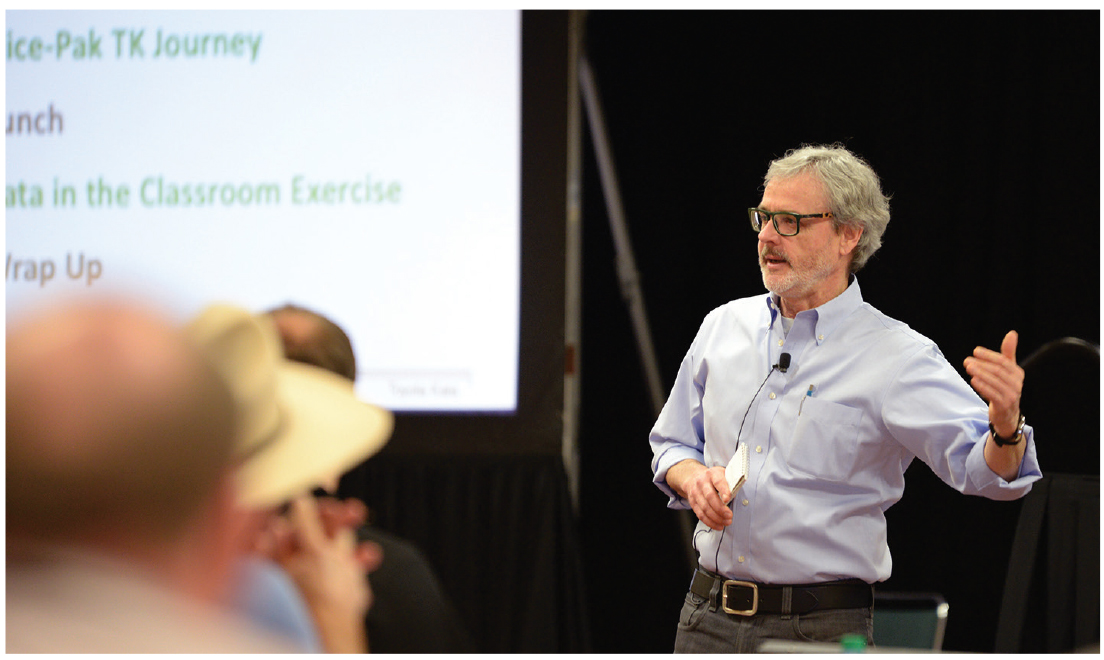By Doyle Sumrall, NTEA Managing Director
This article was published in the August 2018 edition of NTEA News.
Based on countless conversations with work truck industry professionals throughout my career, the commercial vehicle community includes some of the most dedicated people I know. With encouragement and the right tools, our industry accomplishes great things.
For the last several years, NTEA has offered Work Truck Show sessions on shop productivity. In 2018, the educational program included Lean 101: Straightforward Approach to Lean Implementation for Truck Equipment Upfitters and Lean 201: The Kata Journey — Daily Practice for Scientific Thinking, Mindset and Culture. Both sessions featured representatives from National Institute of Standards and Technology’s Manufacturing Extension Partnership (MEP) program and addressed low-cost processes proven to enhance employee productivity.
The word lean is often thrown around in the productivity conversation, but it may not convey the intended meaning. The Work Truck Show® Lean 101 special session, conducted by Purdue MEP productivity improvement specialists, brought clarity, exploring how small shops (or bays within a shop) can apply effective processes in a highly custom environment and benefit from work planning and quality controls. The course used a log truck build to demonstrate concepts like process control, work flow and organization. The bottom line: Incorporating efficient processes can streamline production of even one unit by at least 20 percent.

At Lean 101, attendees participate in a hands-on upfit exercise modeling shop activity and improvement.
This class receives high marks. Session feedback indicates participants appreciate the visual, hands-on learning environment and are enthusiastic about finding ways to apply takeaways to their operations. Each year, several companies have come back to share something they implemented and how it enhanced their business performance. These stories are proof investing in training and innovative methods is a wise move.

Ed Hlava, a specialist from Purdue Manufacturing Extension Partnership, speaks at the WTS18 Lean 101 special session.
Lean 201: The Kata Journey — Daily Practice for Scientific Thinking, Mindset and Culture, new to the 2018 educational program, focused on how knowledge is built, retained and transferred within teams. Mike Rother, author of the Toyota Kata book series, shared his research findings and perspective as an engineer and teacher who works with companies around the world to advance team adaptiveness.
In addition, representatives from Arkansas MEP and Arkansas Economic Development
Commission discussed their Kata journey. These presenters focused on the importance of applying scientific thinking skills. Kata is not an improvement method; it’s a way of thinking that facilitates all improvement methods and sets up an internal and external support structure for individuals and teams.

Experts discuss research findings foundational to the Toyota Kata book series in the Lean 201 special session at WTS18.
Considering Lean 201, responding participants strongly agreed the session delivered what was promoted (4.8 rating on a 5.0 scale). Many attendees indicated they would use Kata principles, applying the coaching, problem-solving and scientific thinking concepts to their business practices.
For the 2019 Show, some companies involved in the pilot session will be invited to return and overview their unique implementation experiences. Sign up to be notified when WTS19 registration opens and sessions details are released (worktruckshow.com/wts19signup).
These training sessions are geared toward small custom shops and other upfitters and manufacturers. The productivity theme will take even greater precedence in 2019. Attending companies that have engaged these principles are experiencing the benefits. I’ll share more about opportunities to get involved at The Work Truck Show 2019 in the coming months.
MEP, a public-private partnership with centers in all 50 states and Puerto Rico, is dedicated to serving small and medium-sized manufacturers. Last year, MEP centers interacted with 26,313 manufacturers, leading to $12.6 billion in sales, $1.7 billion in cost savings and $3.5 billion in new client investments, and helped create and retain more than 100,000 jobs. Learn more at nist.gov/mep.
